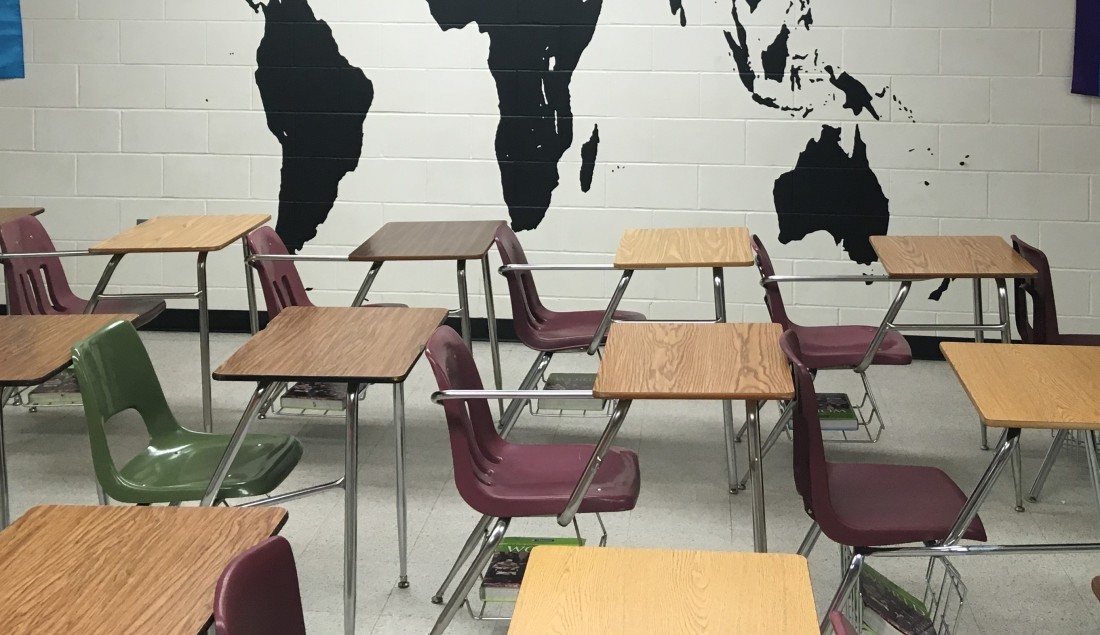Laws best serve the public interest when the literal reading of the words of any particular piece of legislation accurately reflect the intent behind the authoring of that legislation. The literal reading of the law is sometimes referred to as the “letter” of the law. The intent of the law is sometimes referred to as … Continue reading The “Spirit” of House Bill 1775
Category: Curriculum
The Decline of Indoctrination in Oklahoma Classrooms
There was a time in Oklahoma when political indoctrination in public school classrooms was a systemic problem. This was a time when particular political ideologies were seen as part and parcel of the educational goals of the entire U.S. public school system. It was a time when students were not given the opportunity to question … Continue reading The Decline of Indoctrination in Oklahoma Classrooms
Deadnaming in the Classroom and How to Avoid It
Like so many school experiences in the U.S. over the last two years, my management, organization, and delivery of instruction as a classroom teacher has forever been altered by distance learning, one-to-one technology, and the use of a learning management system (referred to here as LMS). In 2021, some teachers opted to revert to pencil … Continue reading Deadnaming in the Classroom and How to Avoid It
The Somewhat Philosophical Argument Against Zeros in Grading
(Note: Immanuel Kant inexcusably espoused racist ideology as part of the so-called “race science” of the Enlightenment era. Some of Kant’s contributions to metaphysics and ethics are used here as analogous to the debate over teacher’s assigning zeros to student work. Nothing written here should be understood as an endorsement of Kantian philosophy.) There is … Continue reading The Somewhat Philosophical Argument Against Zeros in Grading
For More Equity in Distance Learning, Put Classroom Teachers on Television
Public schools in the United States effectively utilize a variety of tools to address numerous societal inequities; tools like individual education plans, culturally responsive teaching, ethnic study programs, restorative justice practices, among others. A public school is a complex organism that is not complete without the sum of its parts; parts like teachers, students, administrators, … Continue reading For More Equity in Distance Learning, Put Classroom Teachers on Television
MAPS 4 Curriculum
Spoon Vision is proud to announce the release of a three-day comprehensive curriculum covering local government issues specifically related to the upcoming vote on MAPS 4 on December 10, 2019, in Oklahoma City! This mini unit is aligned with Oklahoma Academic Standards for both 9th Grade Oklahoma History and 12th Grade U.S. Government. The "MAPS … Continue reading MAPS 4 Curriculum
Rethinking Red Ribbon Week
Thousands of elementary, middle, and high schools across the nation are gearing up to celebrate Red Ribbon Week with a classroom door decorating and photo contest. Other schools may use the extensive list of resources available at redribbon.org to take the annual event to deeper and perhaps more meaningful levels. But every October, I feel … Continue reading Rethinking Red Ribbon Week
“We Can’t Vote, But You Can!”
Reflections on a Middle School Voter Registration Drive “Hello, ma’am! Are you registered to vote? Yes? Any recent changes? Address? Name? You can also change your political party.” This became the unofficial script for my 8th grade civics students spending September afternoons in front of a Save-A-Lot grocery store in Del City, Oklahoma. But the … Continue reading “We Can’t Vote, But You Can!”
The Educational Value of Wikipedia in the Age of Fake News
If I had a dollar for every time I have heard a middle school student say that another teacher told them Wikipedia was not a reliable source, “I would be making money in a very weird way” (to put it in the words of the late comedian, Mitch Hedberg). When Wikipedia came along in 2001, … Continue reading The Educational Value of Wikipedia in the Age of Fake News
Dos and Don’ts of Teaching American Slavery (for White Educators)
The Southern Poverty Law Center and Teaching Tolerance recently released a report entitled, “Teaching Hard History: American Slavery.” It is essential reading for all teachers; all subjects and all grade levels. The companion podcast series of the same name is equally valuable for educators. For U.S history teachers, like myself, that teach American slavery as … Continue reading Dos and Don’ts of Teaching American Slavery (for White Educators)
